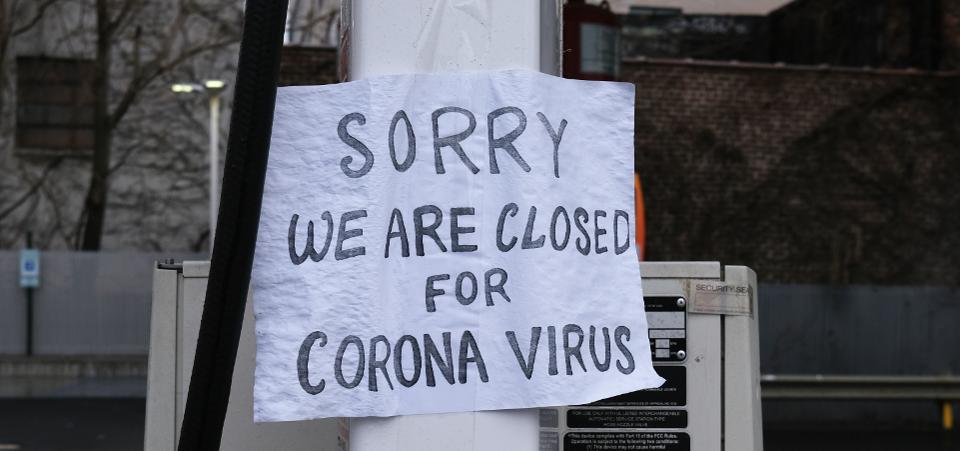RIO DE JANEIRO, BRAZIL – Projections for the Brazilian economy are becoming increasingly bleak. On Wednesday, June 24th, the International Monetary Fund (IMF) revised its projection for the country’s GDP (Gross Domestic Product) drop in 2020 from 5.3 to 9.1 percent.

If confirmed, it would be the worst result since official records began in 1900. By way of comparison, the country’s historic recession in 2015-2016 represented a cumulative drop of 7.2 percent in GDP.
Brazil was one of the countries with the largest projection cut since the last IMF report in April. The projection for the country is still far from the expected 12 percent drop in countries like France, Italy, and Spain, but it is a negative highlight among emerging economies.
“What they are saying is that the disease has strongly affected consumer and business confidence, and that the flow of capital to Latin America has greatly decreased, as has the price of commodities,” says Alex Agostini, chief economist at Austin Rating.
The forecast is for one percent growth in China and lower drops in South Africa (-8 percent), Russia (-6.6 percent), and India (-4.5 percent). Among comparable countries, only Argentina (-9.9 percent) and Mexico (-10.5 percent) would experience greater declines.
“The IMF’s stance has deteriorated greatly since April, especially due to the perception that consumption has dropped to a more depressed level, urban mobility is still at low levels, and the impacts on the labor market are still far from being overcome,” says Arthur Mota, of EXAME Research.
The coronavirus crisis is unprecedented, which makes it difficult to project, based on external factors that are difficult to gauge, such as epidemiological curves and the deadline for new treatments and vaccines.
“It seems to me that the data for Brazil and the United States (-8 percent) are somewhat exaggerated or too pessimistic. Our expectation for 2020 here is a drop of seven percent, with a potential downward revision,” says Mota.
The forecast in the Focus Bulletin, which gathers weekly market projections, is for a 6.5 percent drop in 2020. The government officially expects a drop of only -4.7 percent in the year.
What went wrong
Economists point out that Brazil is one of the negative highlights in the global economic scenario, because it is also a negative global example in the management of the pandemic. With over 1.15 million cases and 52,000 deaths, the country is the world’s second-largest epicenter of the disease, behind only the United States.
“As in other cases, in the region and abroad, the prolonged period of infections should also extend confinements and other recessive effects,” says Otaviano Canuto, former director of the World Bank and director of the Policy Center for the New South.
The country now has its third Minister of Health since the start of the pandemic and has never seen any national coordination of social isolation measures, testing and medical care, or even a national campaign promoting ways to reduce the risk of infection.
“Due to insurmountable differences between the federal government and the rest, we’ve been partially quarantined. While the Western world is coming out of it, we’re still on an upward curve,” says Sérgio Vale, chief economist at MB Associates.
In addition, the economic team initially underestimated the magnitude of the crisis and revealed shortcomings in the design and execution of aid programs.
“The programs designed did not adequately reach the tip needed, both for companies and consumers, unlike what happened in Europe and the USA. These countries are sustaining the income standard and improving employment because they have implemented effective programs,” he said.
Economist Marcos Lisboa, president of INSPER (school of business, economics, and engineering), assessed the response as “botched” and recalled that “the Brazilian economy was not doing well before the crisis.”
The whole world will increase its debt level to contain the impacts of the disease, but Brazil is worst affected because it was coming from a higher level and from a fiscal crisis that has not yet been resolved.
Another negative highlight in the country is the political crisis. President Jair Bolsonaro has clashed constantly with state governors and raised the tone of threats of an institutional breakdown. At the same time, he found himself the target of inquiries that unravelled his family’s links to the spread of fake news and Rio de Janeiro’s militias.
“We have a deep political crisis that no other country has. And the need for reforms will be inversely proportional to the government’s political ability to implement them,” Vale says.
A bit of encouragement is that the IMF’s growth projection for Brazil in 2021 increased from 2.9 percent in the previous report to 3.6 percent; however, it is insufficient to offset the slump.
Source: Exame

